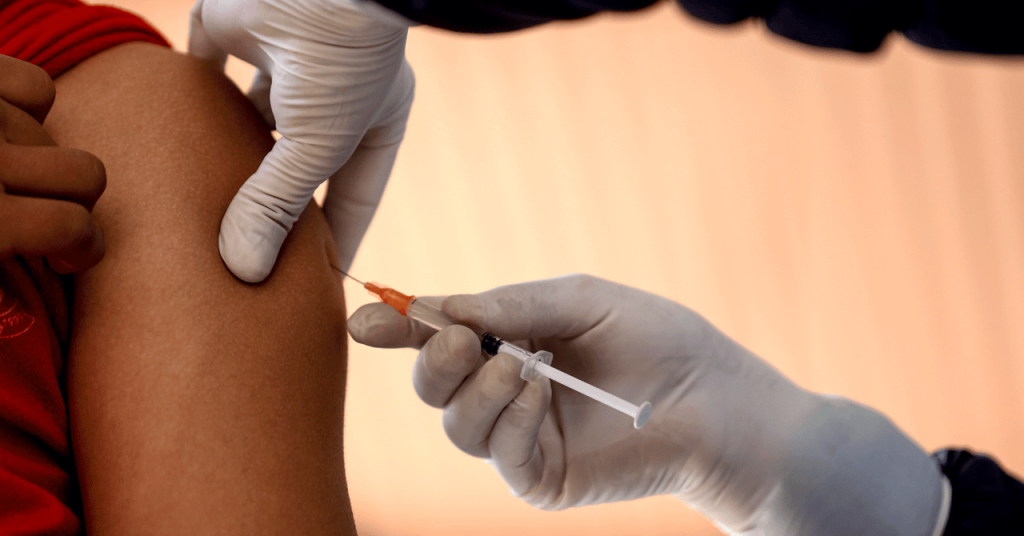CDC and AMA Urge Unvaccinated Americans to Get Measles Shot as Cases Surge
The Centers for Disease Control and Prevention (CDC) and the American Medical Association (AMA) have issued separate but similar appeals on Monday, calling for unvaccinated Americans to get immunized against the highly infectious measles virus as vaccination rates have declined and cases are on the rise.
Vaccination Rates Falling Below Target
Recent data shows that vaccination rates among US kindergarteners have dropped to 93 percent nationwide, falling short of the 95 percent goal needed to prevent the spread of the disease. Moreover, vaccine exemptions for non-medical reasons have reached record highs.
CDC Health Advisory Highlights Risks
The CDC released a health advisory on Monday, emphasizing that unvaccinated Americans are primarily responsible for importing the virus, and clusters of unvaccinated children in local communities contribute to its spread once it arrives in the country. Among the 58 measles infections reported to the agency so far, seven outbreaks have occurred across seven states. The majority of cases are in vaccine-eligible children aged 12 months and older who have not been vaccinated. Notably, 54 out of the 58 cases (93 percent) are associated with international travel, with most measles importations being attributed to unvaccinated US residents who travel abroad and bring the virus back home.
Spring Travel May Worsen Situation
The CDC cautioned that the situation is likely to deteriorate as Americans embark on spring travel. Many countries, including popular travel destinations such as Austria, the Philippines, Romania, and the United Kingdom, are currently experiencing measles outbreaks. To prevent measles infection and minimize the risk of community transmission from importation, the CDC advises all US residents traveling internationally, regardless of their destination, to ensure they are up to date on their MMR (measles-mumps-rubella) vaccinations.
Importance of Vaccination
The CDC further recommended that parents ensure their children receive all recommended doses of the MMR vaccine, even if they are not traveling. Two doses of the MMR vaccine offer better protection (97 percent) against measles compared to a single dose (93 percent). The agency stressed that getting the MMR vaccine is significantly safer than contracting measles, mumps, or rubella.
Low-Coverage Pockets Pose Higher Risk
For vaccinated Americans and communities with high vaccination coverage, the risk remains low. However, pockets of low coverage leave some communities at a higher risk for outbreaks. This, in turn, threatens wider, sustained spread that could jeopardize the country’s measles elimination status, which was declared in 2000. In 2019, the US nearly lost this status when outbreaks among unvaccinated children led to 1,247 cases across 31 states. Since then, vaccination rates have continued to decline.
“The reduction in measles vaccination threatens to erase many years of progress as this previously eliminated vaccine-preventable disease returns,” the AMA’s Ehrenfeld warned.
Measles: A Highly Contagious Virus
Measles is one of the most contagious viruses known, capable of lingering in the air for up to two hours. Up to 90 percent of unvaccinated individuals exposed to the virus will become infected. Symptoms can include high fever, runny nose, red and watery eyes, and a cough, as well as the characteristic rash. Approximately one in five unvaccinated people with measles require hospitalization, while one in 20 infected children develop pneumonia, and up to three in 1,000 children succumb to the infection. Brain swelling (encephalitis) can occur in one in 1,000 children, potentially leading to hearing loss and intellectual disabilities. The virus can also destroy immune responses to previous infections—a phenomenon known as “immune amnesia”—leaving children susceptible to various other infections for years to come.
This story originally appeared on Ars Technica.

3 Comments
Oh, the sequel no one asked for: Measles Strikes Back!
Measles decided 2023 was its year to shine, apparently.
Wow, looks like measles is making a comeback tour, huh